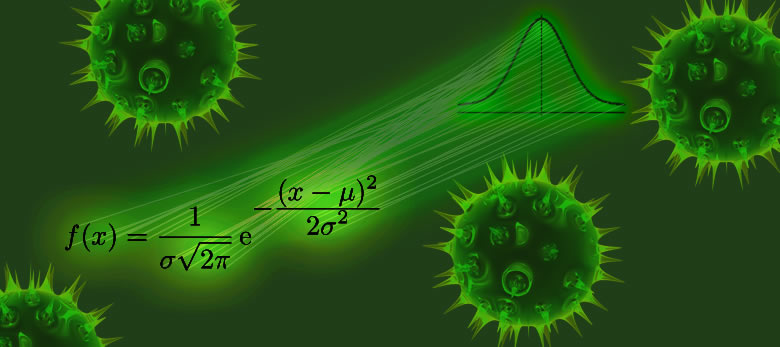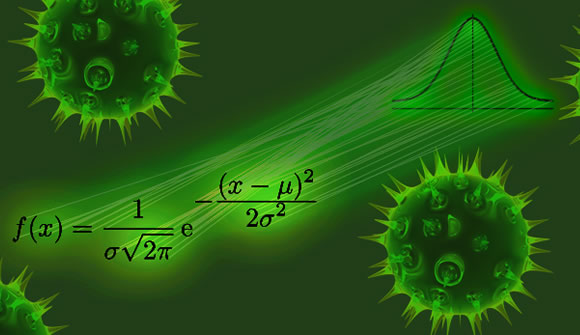Biology
Abstract
The Department of Biology of the Faculty of Science offers a multidisciplinary Master's programme with four different orientations: Biochemistry, Ecology and Evolution, Animal Molecular Life Sciences and Plant and Microbial Sciences. An agreement with the Universities of Bern and Neuchâtel allows students to take elective courses in both institutions as well. Master's students are integrated in research teams and have the opportunity to experience all aspects of the life of a research scientist, gaining extensive experience in academic research. They will also have the possibility to participate in teaching practical courses and other assisting activities.
Profile of the study programme
The study of biology opens the doors to a fascinating world, from the biomolecules to the functioning of ecosystems. The University of Fribourg offers a multidisciplinary study programme leading to the degree of Master of Science in Biology, placing a special emphasis on the development of students' scientific capabilities, such as independent thinking, problem-solving skills, critical evaluation of data, oral and written communication skills, and the ability to work in a team. English is the main language for all activities, but students can choose to take their exams in English, French or German.
As a Master's student, you will deepen your knowledge of modern biological sciences and acquire techniques needed in basic research as well as in practical applications. An agreement with the Universities of Bern and Neuchâtel (Framework Convention BENEFRI) allows you to take elective courses in these Institutions and have them credited for the study programme in Fribourg. The courses, obligatory and elective, are accompanied by discussions, presentations by students and project writing exercises. As a Master's student you are integrated in one of the research teams and have the opportunity to experience all aspects of the daily life of a research scientist, gaining extensive experience in academic research, learning to plan, carry out, analyse and presenting research. You will also have the possibility to participate in teaching practical courses and other assisting activities for which you are paid by the hour.
The Department of Biology of the Faculty of Science offers four different orientations for the Master of Science in Biology:
- Biochemistry
The orientation Biochemistry, puts special emphasis on biomolecules regulating the internal clock, food sensing and growth control, lipid metabolism, ribosome biogenesis, membrane lipids and carbohydrates. The organisms studied are the mouse and the unicellular eukaryotic fungus Saccharomyces cerevisiæ (Baker's yeast). Both allow a fascinating and detailed study of gene function and regulation of homeostasis; - Ecology and Evolution
This orientation promotes higher education and research in organismic biology, in particular in ecology and evolution. Current research interests of members of the unit include food web structure, conservation biology, invasive species, agro-ecology, host-parasite interactions, life-history evolution, inbreeding depression, evolution in fragmented habitats, and population genetics. The organisms investigated are whole food webs, water fleas (Daphnia), horse chestnut leaf miner (Cameraria), as well as plants: spotted knapweed (Centaurea stoebe), groundsel (Senecio), false hellebore (Veratrum), dock (Rumex), poplar (Populus) and their natural enemies; - Animal Molecular Life Sciences
This orientation is centred on the mechanisms that govern animal development in the following animal model systems: The fruit fly Drosophila melanogaster, the nematode Caenorhabditis elegans, the zebra fish Danio rerio and the mouse. Research groups investigate molecular aspects of regeneration, cell differentiation, neuronal outgrowth and connectivity, behaviour, chemoreceptors, and aging. The tools employed are molecular genetics, molecular biology, protein analysis, microscopy and imaging, behavioural analysis and many more; - Plant and Microbial Sciences
This orientation emphasizes the cellular and molecular aspects of pathogenic and symbiotic plant-microbe interactions. The research groups focus on aspects ranging from the recognition of microbes by the plants, initiation of defences, metabolic and hormonal adjustments, and interference of the microbe with the host defences. A gamut of modern tools are used in the areas of molecular biology, reverse genetics, imaging and biochemistry. The training both in practical and theoretical areas will prepare the students for the challenge of the professional world.
Academic and professional openings
Graduates find job opportunities for example as researchers in biotech companies, or in laboratories for quality control (pharmaceutical or agroalimentary industry), as environmental research consultant, biosafety officer or scientific collaborator at various offices and departments of the Swiss Confederation, sales representative for biotech companies, college teachers and many other jobs in fields as diverse as crop protection, animal and human health, or in areas linked to the environment. In short, with a Master's degree in Biology, you can apply for positions that require a solid knowledge in biology, the ability to communicate and to view science under a critical angle, and some practical experience and skills. The Master's degree also paves the way to doctoral studies (Ph.D.). During their Ph.D., students learn how to conduct independent research. During the period of 3-4 years, the Ph.D. student receives a salary and is exposed to the international research community through meetings and publications. Doctoral studies followed by a postdoctoral experience represent the typical way to access academic positions as well as positions in the upper management of industry in Switzerland and abroad.
Studies organisation
Structure of studies
90 ECTS credits, 3 semesters
Curriculum
http://studies.unifr.ch/go/xZPll
http://studies.unifr.ch/go/z3FE1
Admission
Master's degree programmes are built on the knowledge and abilities that were acquired when obtaining a Bachelor's degree.
Holders of a Bachelor's degree awarded from a Swiss university can be admitted to a Master's degree programme within the corresponding discipline (requires the acquisition of minimum 60 ECTS credits at Bachelor level in the corresponding discipline) without any additional requirements. The same applies to holders of a Bachelor's degree awarded by a foreign university, provided that the Bachelor's degree is recognised and considered equivalent by the University of Fribourg.
Holders of a Bachelor's degree awarded from a Swiss university or holders of a Bachelor's degree awarded by a foreign university, provided that the Bachelor's degree is recognised and considered equivalent by the University of Fribourg, can be admitted to a Master's degree programme within another discipline with prerequisites (must be successfully completed before starting the Master's degree programme) or additional requirements (can be completed during the Master's degree programme). According to existing agreements, holders of a Bachelor's degree awarded from a Swiss university of applied sciences can also be admitted with prerequisites or additional requirements.
The respective conditions of admission for each Master's degree programme are reserved.
Alternatives
Also offered as a minor study programme (30 ECTS credits) as part of the Diplôme d'Enseignement pour les Ecoles de Maturité (DEEM)/Lehrdiplom für Maturitätsschulen (LDM).



